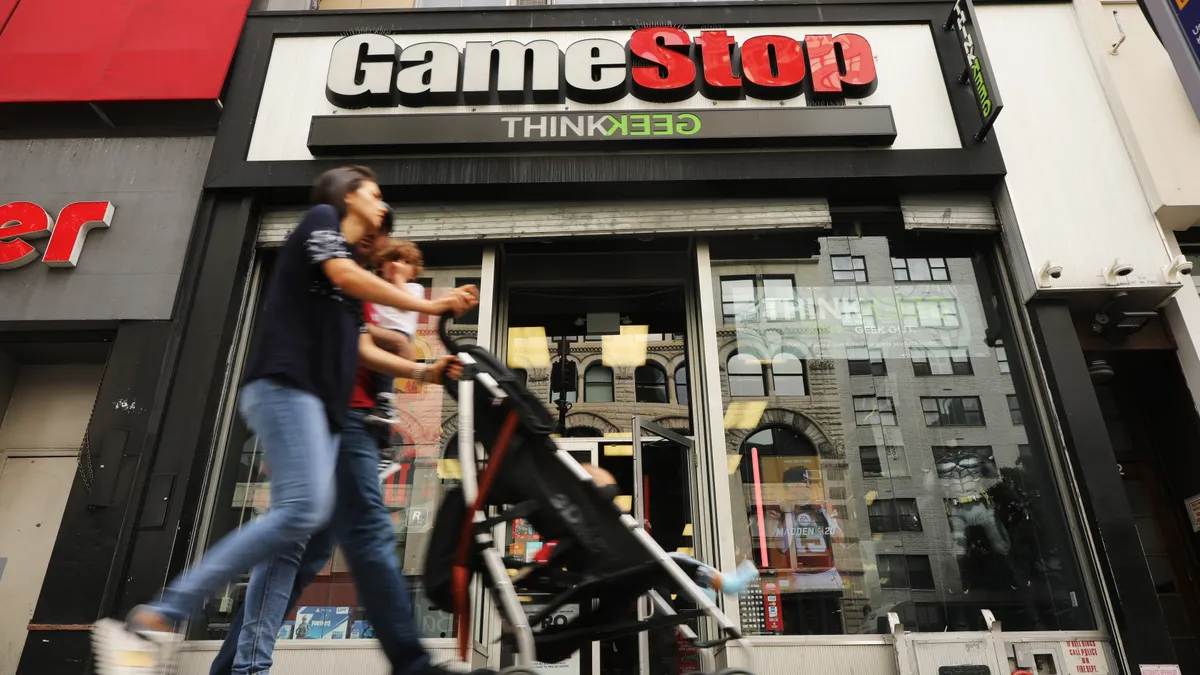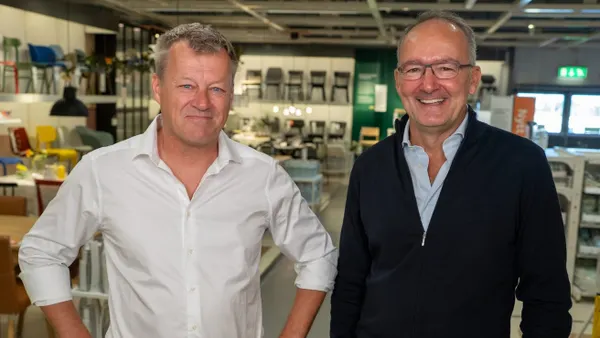Dive Brief:
- GameStop's sales in the third quarter rose more than 29% year over year to $1.3 billion, according to a release. The retailer attributed some of that growth to new and expanded relationships with brands, including with Samsung, LG, Razer and Vizio.
- Inventory levels were up by nearly a third, to $1.1 billion, to "focus on front-loading investments in inventory to meet increased customer demand and mitigate supply chain issues," the company said. Operating loss also grew by more than 60%.
- As it aims for a technology-focused transformation, GameStop added offices in two major tech hubs, Seattle and Boston, during the quarter.
Dive Insight:
GameStop CEO Matt Furlong said this week that the retailer is prioritizing long-term growth over short-term margins, though details on both of those things are scant.
The company's expanded costs and operating losses were left largely unexplained in GameStop's earnings report as well as executives' call with investors, which this year have taken the form of a monologue after the executives stopped taking questions from analysts in calls.
Furlong did hint broadly at the areas where GameStop is looking as it plots a turnaround. The chief said GameStop has been hiring specialists with experience in e-commerce, user experience and interface, blockchain, operations and supply chain. All told, the retailer has made more than 200 senior hires "from some of the top technology companies," Furlong said.
The talent acquisition has partly contributed to the company's expanded costs, with its SG&A line up 17%, according to the company's 10-Q. GameStop also noted that its cash outflow for the quarter increased from last year because of its higher merchandise levels, which were in part an effort to "mitigate the full impact" of the global supply chain issues affecting the industry.
Furlong also noted that GameStop is "focused on expanding our selection, accelerating delivery speeds and improving the customer experience" while also "exploring emerging opportunities in blockchain, NFTs and Web 3.0 gaming."
But the lack of detail makes it difficult to gauge GameStop's chances of thriving, or even surviving, in a category that becomes ever more digitized. "Yet again, management failed to provide clarity around a long-awaited digital transformation plan that has been hinted at in the past but has yet to crystallize," Wedbush analysts led by Michael Pachter said in an emailed research note.
GameStop's profile is higher than it has been in years, due in part to a feverish rise in its stock driven largely by small investors, and which the Wedbush team describes as "completely disconnected from the fundamentals of the business." The stock spike also proved to be profitable for the company, which sold more than half a billion dollars in new shares, enough to pay off its debt and raise new capital for its transformation efforts.
The company has also gone through a massive leadership change this year. With Chewy founder Ryan Cohen coming on as chairman after buying an activist stake in the company and agitating for a shakeup, GameStop has changed its CEO and CFO, and brought on numerous other executives this year.
Jefferies analysts led by Stephanie Wissink pointed out that GameStop's sales mix is indexing higher toward newer "modalities" including PC games while it is building out fulfillment and other infrastructure capabilities and also teasing future "value streams," such as blockchain and NFTs. The analysts note also that "the end result is still a source of debate."














